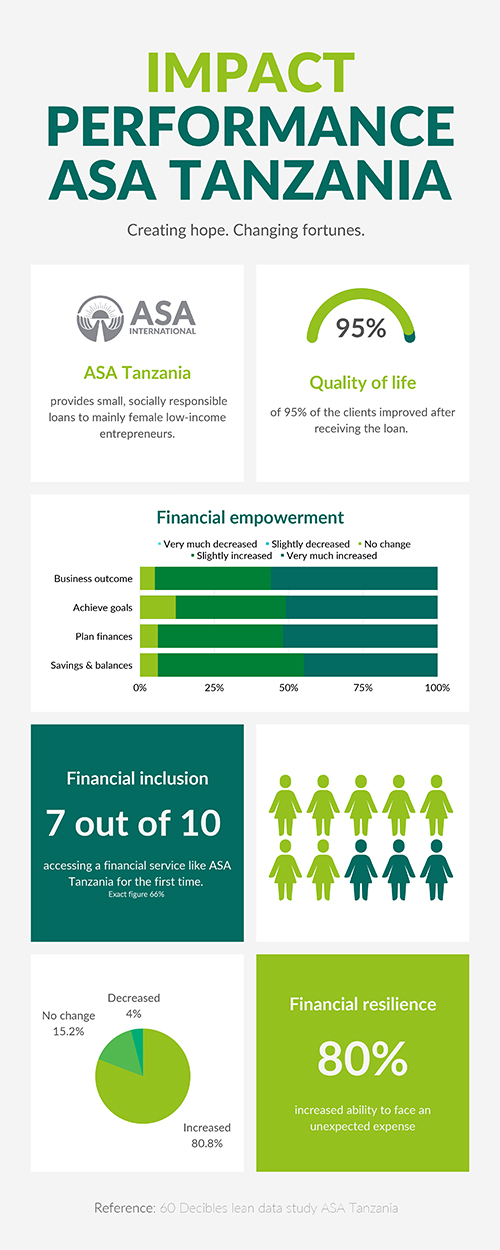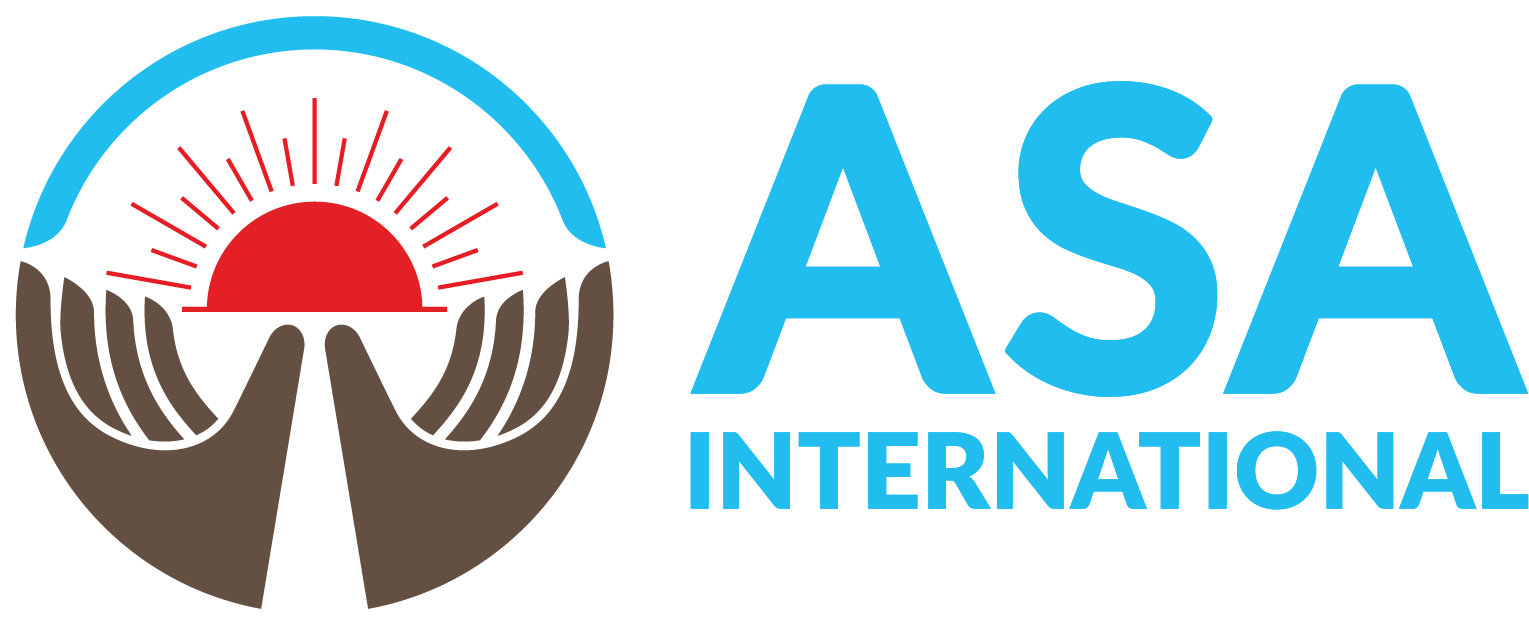Between February and May 2022, 264 phone interviews were conducted with ASA Tanzania’s (the ‘Company’) clients across all regions. The lean data study, commissioned by Global Partnerships, one of the Company’s lenders, was performed by the impact measurement company 60 Decibels (‘60dB’). The results demonstrate how the Company’s loans contribute to clients’ lives and reveal that the scores often exceed the 60dB financial inclusion benchmark.1 Thanks to this performance report, the Company is able to maximize its impact in the community.
Snapshot

Improved quality of life
Many clients reported that the Company’s loans positively contributed to their well-being and quality of life. The most common testimonials cite an increased ability to afford household bills, experienced business growth and an increased ability to buy assets, such as refrigerators, sewing machines etc. For the small percentage who reported no change in their quality of life, most atttributed this to the adverse effects of Covid or that it would be too early in their loan cycle to tell the effects.
This positive change is also visible in clients’ household outcomes, with a significant number of clients saying the amount they spent on home improvements, children’s education, healthcare and family meals had increased after their loan. On a more individual level, almost three quarters of the respondents, of which 98% are female, reported an increased frequency of contributing to family decisions.
My capital has stabilised. I used to import 150 chickens but now import 500 chickens at once. Also, I can pay school fees for my children stress-free.
Female, 45 years old
Financial empowerment and resilience
The data confirms that the high score for the improved quality of life is related to a significant increase in business income. Most clients considered business expansion to be their most important financial goal and said their ability to achieve their goals had increased because of the loan, contributing to their financial empowerment. Other frequently mentioned financial goals were ownership of a property or starting a new venture.
Excellent results were also reported in terms of personal finances and financial resilience, again outperforming the 60 dB benchmark. Almost all clients have an improved ability to cope with adversity through increased savings and balances and an increased ability to plan finances and face unexpected expenses. The report even suggests that ASA Tanzania’s clients are more resilient than average adults in Tanzania, especially considering most are women, as they would have less difficulty allocating 137 USD within a month for an unexpected emergency than the average.
I have been able to improve my business. I get enough profit that helps me fulfil my family basic needs.
Female, 34
Financial inclusion
The results demonstrate that the Company provides clients with a service they have not previously accessed and cannot easily find elsewhere. Two thirds say they are accessing a financial service for the first time and three in five say they would not easily be able to find a good alternative to ASA Tanzania. Although confirming the Company’s value, these figures also show that ASA Tanzania operates in a competitive environment.
Sustainable Development Goals
These results substantiate the Company’s contribution to the SDGs 1 (No poverty); 5 (Gender equality); 8 (Economic growth) and 10 (Reduced inequality). Read more about how the Company's responsible business model supports the SDGs here.
Actionable insights: the Company responds
Although 9 in 10 clients agree that they understand the terms and conditions of their loans (including payments, penalties and loan insurance), the data reveals that some customers do not sufficiently understand all of the Company’s policies.
To safeguard the client protection principles, the Company takes measures, such as:
-
discussing the policies in pre-service orientation training with field staff and reemphasizing those policies that have proven unclear;
-
training clients in financial literacy and their rights via physical training and distribution of informative leaflets;
-
offering a 24 hour customer service line for any questions or complaints.
The Company aims to seize opportunities for improvement and intends to use the insights gathered from the report to fuel discussion and inform decisions.
1 Quantile assessment compares Company performance with 60dB Financial Inclusion Benchmark comprised of 157 companies, 47 countries, and approximately 68,000 clients. More info can be found here.

